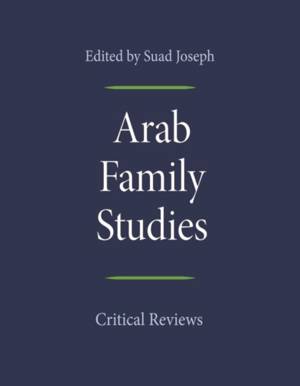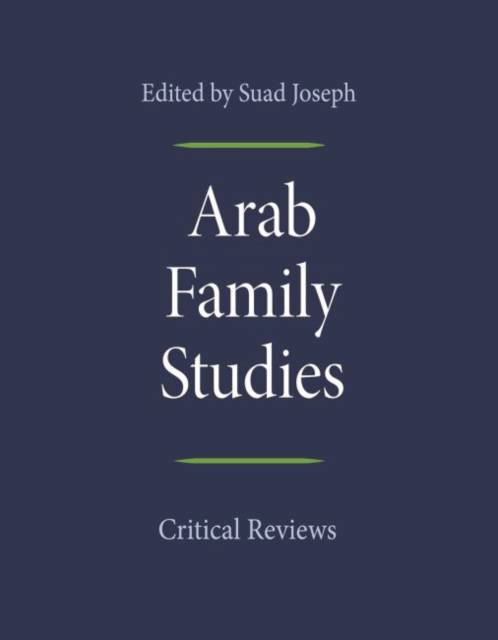
- Retrait gratuit dans votre magasin Club
- 7.000.000 titres dans notre catalogue
- Payer en toute sécurité
- Toujours un magasin près de chez vous
- Retrait gratuit dans votre magasin Club
- 7.000.0000 titres dans notre catalogue
- Payer en toute sécurité
- Toujours un magasin près de chez vous
Arab Family Studies
Critical Reviews
Description
Family remains the most powerful social idiom and one of the most powerful social structures throughout the Arab world. To engender love of nation among its citizens, national movements portray the nation as a family. To motivate loyalty, political leaders frame themselves as fathers, mothers, brothers, or sisters to their clients, parties, or the citizenry. To stimulate production, economic actors evoke the sense of duty and mutual commitment of family obligation. To sanctify their edicts, clerics wrap religion in the moralities of family and family in the moralities of religion. Social and political movements, from the most secular to the most religious, pull on the tender strings of family love to recruit and bind their members to each other. To call someone family is to offer them almost the highest possible intimacy, loyalty, rights, reciprocities, and dignity.
In recognizing the significance of the concept of family, this state-of-the-art literature review captures the major theories, methods, and case studies carried out on Arab families over the past century. The book offers a country-by-country critical assessment of the available scholarship on Arab families. Sixteen chapters focus on specific countries or groups of countries; seven chapters offer examinations of the literature on key topical issues. Joseph's volume provides an indispensable resource to researchers and students, and advances Arab family studies as a critical independent field of scholarship.Spécifications
Parties prenantes
- Editeur:
Contenu
- Nombre de pages :
- 640
- Langue:
- Anglais
- Collection :
Caractéristiques
- EAN:
- 9780815635598
- Date de parution :
- 10-07-18
- Format:
- Livre relié
- Format numérique:
- Genaaid
- Dimensions :
- 221 mm x 282 mm
- Poids :
- 1723 g

Les avis
Nous publions uniquement les avis qui respectent les conditions requises. Consultez nos conditions pour les avis.





